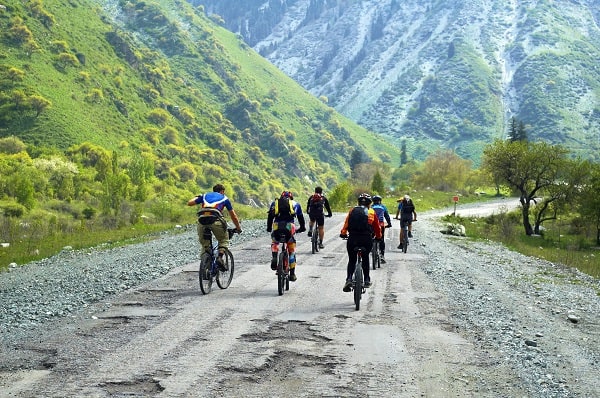Top Tips for the Perfect Cycle Tour
Cycling holidays and tours are a fantastic way to really explore everything a destination has to offer, from tiny quaint back streets to stunning mountain views. Whether you’re looking for a new challenge, to indulge your cycling passion, or simply a change from a regular beach holiday, we’ve got tips to ensure you have the perfect cycling trip.

Independent or Tour Operator
It’s completely up to you – many people find a scheduled tour with other riders much more fun and relaxing than trying to plan a route themselves, whereas others prefer to get going on solo adventures.
If this is your first tour it might be worth booking with an operator to get the experience, then you can book future solo trips. There is a whole wealth of tours available all over the world, so do some research and find the best one to suit your passions and budget.
Some great tour operators are:
Fitness
The fitness level required for your trip will totally depend on the terrain you plan to ride on and the distance you want to travel each day.
To avoid any mishaps (and dreaded saddle sores), make sure you prepare for your trip by practicing, for example riding to work is great preparation for a city tour, whereas mountain biking at weekends will be better for on and off-road adventure preparations.
- Look at the distance you are going to be riding day to day on your tour, then you can prepare accordingly if this is more than you are already comfortable with riding. Most tours will include regular stops, but if you added just 10% on your journeys you already do – you will get to the intended distance in no time.
- Once you have got used to the distance, try and do some back to back rides to get yourself used to riding daily.
- The best way to prepare for hill riding – even if you live somewhere flat – is to pedal continuously at an effort level that leaves you slightly out of breath.
- Ensure you are constantly hydrated during your rides, both practice and tour!
Equipment
If you have a bike that you’re comfortable with, that you service regularly and that is in good condition, it will probably be better to take it with you as opposed to hiring one when you arrive.
However, you can always enquire with the tour company to see if you can rent equipment locally or from them – just make sure they’re of a good standard, otherwise your whole trip could be over before you even get started.
If you do take your own bike, make sure you tell the airline ahead of time, so you know whether you have to pay a flat fee, or if it’s included in your baggage allowance.
Whether you take your own bike or rent one, it’s always a good idea to do some quick research on bike repairs, it shouldn’t take long but will save time on your trip should something happen. The basics to read up on include changing tubes, repairing punctures, replacing chains and adjusting brakes.
Remember that a helmet is an investment, especially when cycling abroad, so make sure you get a good one! We like this one by Kask, retailing for £90, it is an investment but definitely worth it.
Choose shoes and clothes depending on the weather and terrain in your chosen destination, but make sure you get base layers, gloves, lycra shorts (to wear under your baggy shorts) and good quality shoes.
We like Go Outdoors for an all-inclusive retailer that you can purchase the majority of the bits you will need at all together for a reasonable cost.
Also, ensure you don’t skimp with your saddle! When riding long distances for an extended period of time, such as a cycling tour, you need to ensure you are comfy or else your bottom will be sore and you won’t be able to finish the tour.
We’d suggest heading to your nearest cycling shop to try them out before purchasing.
Top 10 Cycling Destinations to Consider
- New Zealand
- USA
- Wales
- Morocco
- Croatia
- Scotland
- Canada
- South Africa
- France (the Loire Valley)
- France (Provence)
For more reading click here.
Insurance
Most standard travel insurance policies will cover ‘cycling’, however, activities such as off-road cycling or cycling at altitude may require additional cover, so check the T&Cs carefully.
Another thing to consider is that a standard policy won’t usually cover your bike, cycle accessories, or repatriation of your bike, so it’s always worth investigating specialist bike specific travel insurance policies. Visit our cycling travel insurance page for more information.


